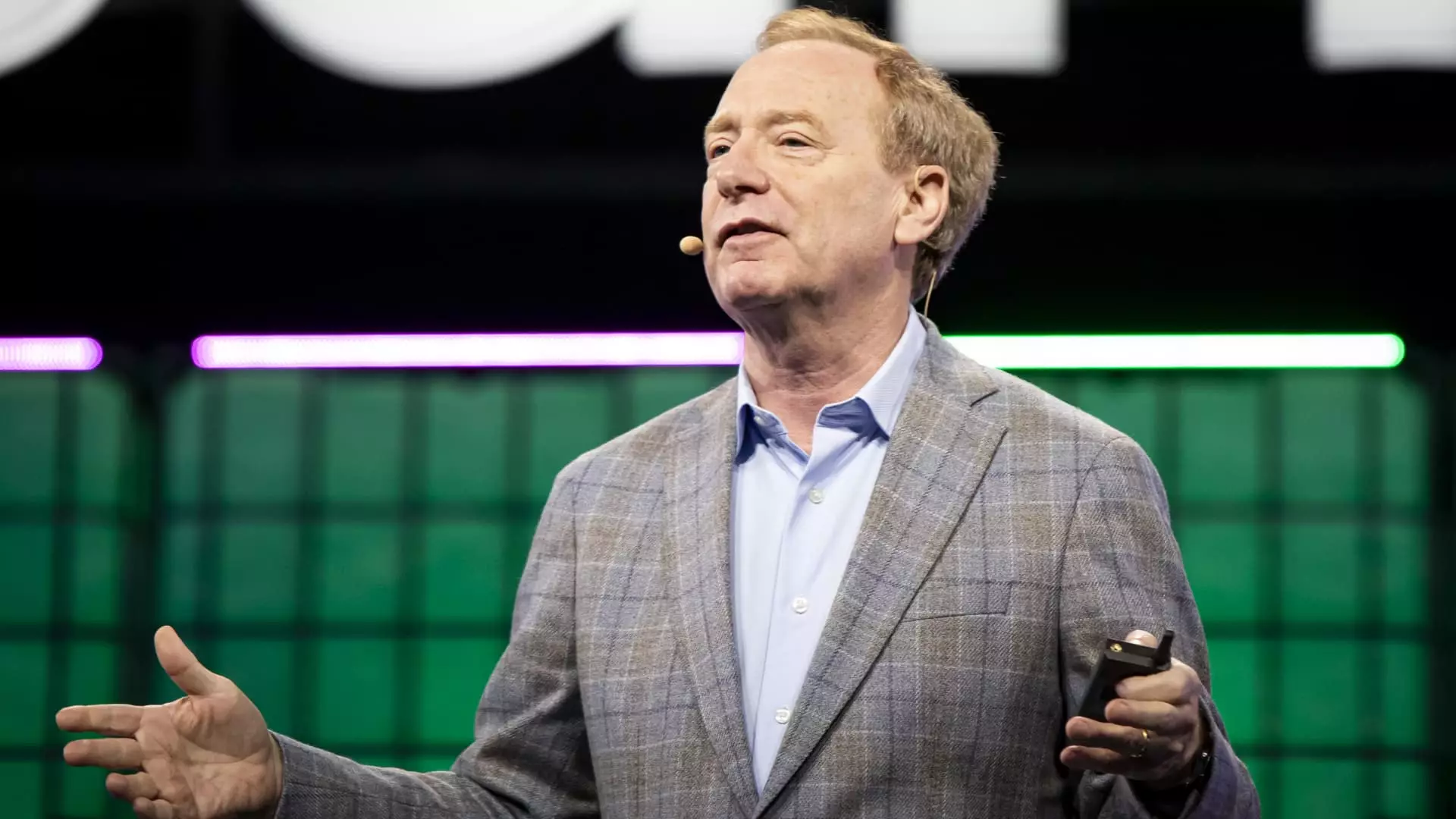In an impressive show of commitment to artificial intelligence (AI) innovation, Microsoft has announced plans to allocate a staggering $80 billion towards the establishment of data centers designed to support AI workloads in fiscal year 2025, as highlighted by Vice Chair and President Brad Smith. This expenditure underscores Microsoft’s belief in the pivotal role that AI will play in shaping the future of technology and business. More than half of this significant investment is expected to be directed within the United States, reflecting a strong emphasis on domestic capabilities that can enhance the nation’s standing in the global AI arena.
Smith pointed out that the U.S. has emerged as a frontrunner in the AI race, thanks to robust private investment and the innovative efforts of American companies across all sectors. This assertion is supported by collaborations between Microsoft and cutting-edge firms like OpenAI, along with other rising companies such as Anthropic and xAI. Such partnerships not only bolster Microsoft’s portfolio of AI-enabled products but also foster an ecosystem of creativity and advancement that is essential for maintaining competitive advantage in the technology sector.
The fervor surrounding AI development has led numerous tech giants to invest heavily in graphics processing units (GPUs) from Nvidia, a vital resource for training sophisticated AI models. This race went into high gear following the meteoric rise of OpenAI’s ChatGPT, which catalyzed numerous companies to develop their own generative AI solutions. Microsoft has clearly positioned itself at the forefront of this surge, having invested over $13 billion in OpenAI and integrating its powerful models across various platforms, including Windows and Teams.
Microsoft’s first quarter of fiscal 2025 showcased considerable financial activity, with $20 billion reported in capital expenditures and asset acquisitions, which included $14.9 billion on property and equipment. Moreover, as noted by Chief Financial Officer Amy Hood, a sequential increase in capital expenditures is anticipated for the second quarter of the fiscal year. Notably, the company’s Azure cloud services experienced a robust year-over-year growth of 33%, with AI services contributing significantly—12 percentage points—to this overall increase.
Amid these ambitious plans, Smith also emphasized the importance of maintaining U.S. leadership in AI amidst increasing global competition, particularly from China. He raised concerns about China’s initiatives to provide developing nations with access to cheaper AI technology and production resources, suggesting that such moves could jeopardize the U.S.’s competitive edge. Smith encouraged the incoming U.S. administration to adopt proactive policies that promote AI education and bolster American AI technologies internationally.
Microsoft’s decision to invest $80 billion into AI infrastructure not only signals its commitment to being a key player in the evolving AI landscape but also highlights broader concerns about global competitiveness. As the stakes rise, the U.S. must embrace innovation and cooperation to secure its position in this critical sector. Microsoft’s strategies, partnerships, and substantial financial investments place it at a crossroads, potentially setting the pace for the future of artificial intelligence on a global scale.

